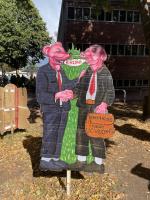 Always identified with audacity, - or, as seen in the international press, marked with “controversies” and even “scandals” - the event is among the largest and most important in the art world. The fifteenth edition that was recently carried out was not exempt from a “scandal”: the unanimity of the German press in its judgment of anti-Semitism.
Always identified with audacity, - or, as seen in the international press, marked with “controversies” and even “scandals” - the event is among the largest and most important in the art world. The fifteenth edition that was recently carried out was not exempt from a “scandal”: the unanimity of the German press in its judgment of anti-Semitism.
02.11.2022 | by Cheong Kin Man
 This exhibition presents around 60 works by 21 artists whose family origins lie in the former colonies in Africa. Born and raised in a post-colonial context, they are artists whose works have become unavoidable in European contemporary art, proposing a reflection on their heritage, their memories and their identities.
This exhibition presents around 60 works by 21 artists whose family origins lie in the former colonies in Africa. Born and raised in a post-colonial context, they are artists whose works have become unavoidable in European contemporary art, proposing a reflection on their heritage, their memories and their identities.
01.11.2022 | by Marta Lança
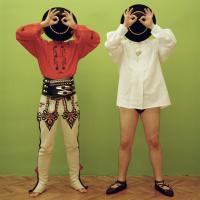 The exhibition, which aims to give voice to a young generation of photographers in Poland, also includes the work of Irena Kalicka, a young artist who is critical of her country’s tendency to turn to the extreme right. I had the opportunity to present a photograph of her in the magazine “Fantasia Macau” last year.
The exhibition, which aims to give voice to a young generation of photographers in Poland, also includes the work of Irena Kalicka, a young artist who is critical of her country’s tendency to turn to the extreme right. I had the opportunity to present a photograph of her in the magazine “Fantasia Macau” last year.
21.10.2022 | by Cheong Kin Man
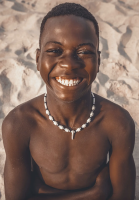 Angola is a nation still recovering from years of war and internal conflict, but photographer Kim Praise has his heart set on capturing the nation’s beauty, and the ways in which it’s evolving for the better. He tells writer Ify Obi about his favorite things about his home, and why he’s determined to paint the country—and its people—in a new light.
Angola is a nation still recovering from years of war and internal conflict, but photographer Kim Praise has his heart set on capturing the nation’s beauty, and the ways in which it’s evolving for the better. He tells writer Ify Obi about his favorite things about his home, and why he’s determined to paint the country—and its people—in a new light.
12.10.2022 | by Ify Obi
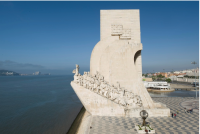 I believe that through art we can find a strong path of remembrance. Artists are able to communicate across temporalities and spaces, which traditional historiographical treatment could hardly accomplish. Artists who work with individual and personal history build empathy through works compared to academic research. Colonial monuments and street names left un-vandalized are not neutral spaces. As static as stone and tarmac may seem, memory is a process, not something carved and eternally preserved. New practices of memory preservation, from manifold perspectives, allow for addressing misconceptions and novel understandings of where certain contemporary situations emerge. In the absence of these practices, our imaginary becomes an accomplice to denials of violent that can always be repeated in unexpected ways.
I believe that through art we can find a strong path of remembrance. Artists are able to communicate across temporalities and spaces, which traditional historiographical treatment could hardly accomplish. Artists who work with individual and personal history build empathy through works compared to academic research. Colonial monuments and street names left un-vandalized are not neutral spaces. As static as stone and tarmac may seem, memory is a process, not something carved and eternally preserved. New practices of memory preservation, from manifold perspectives, allow for addressing misconceptions and novel understandings of where certain contemporary situations emerge. In the absence of these practices, our imaginary becomes an accomplice to denials of violent that can always be repeated in unexpected ways.
27.08.2022 | by Marta Lança
 As agitprop, People’s Justice isn’t complex. On the right are the simple citizens, villagers and workers: victims of the regime. On the left are the accused perpetrators and their international accomplices. Representatives of foreign intelligence services – the Australian ASIO, MI5, the CIA – are depicted as dogs, pigs, skeletons and rats. There is even a figure labelled ‘007’. An armed column marches over a pile of skulls, a mass grave. Among the perpetrators is a pig-faced soldier wearing a Star of David and a helmet with ‘Mossad’ written on it. In the background stands a man with sidelocks, a crooked nose, bloodshot eyes and fangs for teeth. He is dressed in a suit, chewing on a cigar and wearing a hat marked ‘SS’: an Orthodox Jew, represented as a rich banker, on trial for war crimes – in Germany, in 2022.
As agitprop, People’s Justice isn’t complex. On the right are the simple citizens, villagers and workers: victims of the regime. On the left are the accused perpetrators and their international accomplices. Representatives of foreign intelligence services – the Australian ASIO, MI5, the CIA – are depicted as dogs, pigs, skeletons and rats. There is even a figure labelled ‘007’. An armed column marches over a pile of skulls, a mass grave. Among the perpetrators is a pig-faced soldier wearing a Star of David and a helmet with ‘Mossad’ written on it. In the background stands a man with sidelocks, a crooked nose, bloodshot eyes and fangs for teeth. He is dressed in a suit, chewing on a cigar and wearing a hat marked ‘SS’: an Orthodox Jew, represented as a rich banker, on trial for war crimes – in Germany, in 2022.
10.08.2022 | by Eyal Weizman
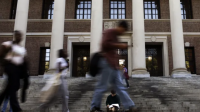 Students’ activism and social demand for more laws for people in need are some ways of changing the issue but are they enough? Can we fight against social stratification? This situation is an old one and it is deep-seated in society. People in power that belong to the upper classes want to remain that way. Is it possible the existence of an equal world with equal people, access, and values?
Students’ activism and social demand for more laws for people in need are some ways of changing the issue but are they enough? Can we fight against social stratification? This situation is an old one and it is deep-seated in society. People in power that belong to the upper classes want to remain that way. Is it possible the existence of an equal world with equal people, access, and values?
17.02.2022 | by Arimilde Soares
 With this MEMOIRS project Newsletter, Nº 147, we conclude a journey started on May 5, 2018. To the
group of researchers of the project, to the dozens of external collaborators, to all the artists who
contributed with their images, to the producers and designers, the deep gratitude of the editors, who
are certain of two things: to have contributed to the sharing of a common good, knowledge, and to
have done so in the spirit of public service
With this MEMOIRS project Newsletter, Nº 147, we conclude a journey started on May 5, 2018. To the
group of researchers of the project, to the dozens of external collaborators, to all the artists who
contributed with their images, to the producers and designers, the deep gratitude of the editors, who
are certain of two things: to have contributed to the sharing of a common good, knowledge, and to
have done so in the spirit of public service
17.01.2022 | by António Pinto Ribeiro
 The past five years have seen a flurry of activity around issues of restitution of African material heritage, resulting in new reports, new books and even, new returns. Along with this sudden surge in activity there has been an escalation in debate around these questions, where positions once thought to be entrenched, racist, conservative, and considered mainstream, seem to have shifted dramatically. In the frenzy, it can begin to feel as if things are changing and that society is progressing. But we’d do well to pause for deeper dives and more systematic remembering of what has come before.
The past five years have seen a flurry of activity around issues of restitution of African material heritage, resulting in new reports, new books and even, new returns. Along with this sudden surge in activity there has been an escalation in debate around these questions, where positions once thought to be entrenched, racist, conservative, and considered mainstream, seem to have shifted dramatically. In the frenzy, it can begin to feel as if things are changing and that society is progressing. But we’d do well to pause for deeper dives and more systematic remembering of what has come before.
28.12.2021 | by
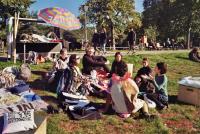 The following dialogue was conducted after the very first action. “Common Ground” was a reading session in which organizers and participants from different cultural backgrounds and with different native languages faced the problem of translation and the complicated, thorny question of language hierarchy in academia (and thus, a hierarchy of ideas). In this dialogue, now reproduced in the written form of an interview, Sala had fulfilled her genuine wish to break the “collective isolation” that many people - including artists - have been facing until now.
The following dialogue was conducted after the very first action. “Common Ground” was a reading session in which organizers and participants from different cultural backgrounds and with different native languages faced the problem of translation and the complicated, thorny question of language hierarchy in academia (and thus, a hierarchy of ideas). In this dialogue, now reproduced in the written form of an interview, Sala had fulfilled her genuine wish to break the “collective isolation” that many people - including artists - have been facing until now.
09.12.2021 | by Cheong Kin Man
 In the contemporary discussions regarding post-colonial Europe, the concepts of memory and post- memory have taken on growing importance, giving prominence to an insight with great political relevance: colonialism never ends with those who enforced or suffered it. Traces of a colonial mindset impregnate generations to come and it has been passed down through the image of the former coloniser and the former colonised. These characters restage a complex phantasmagoria closely related to the most intimate ghost of the European subconscious: its colonial ghost which manifests itself inter alia in the form of a colonial “transfer of memory” – as racism, segregation, exclusion, subalternity – or in the form of “eruptions of memory”, and thereby questions the very essence of European multicultural societies, shaped by colonial heritage and fed by waves of migration.
In the contemporary discussions regarding post-colonial Europe, the concepts of memory and post- memory have taken on growing importance, giving prominence to an insight with great political relevance: colonialism never ends with those who enforced or suffered it. Traces of a colonial mindset impregnate generations to come and it has been passed down through the image of the former coloniser and the former colonised. These characters restage a complex phantasmagoria closely related to the most intimate ghost of the European subconscious: its colonial ghost which manifests itself inter alia in the form of a colonial “transfer of memory” – as racism, segregation, exclusion, subalternity – or in the form of “eruptions of memory”, and thereby questions the very essence of European multicultural societies, shaped by colonial heritage and fed by waves of migration.
31.10.2021 | by Margarida Calafate Ribeiro
 The exhibition Europa Oxalá is also the ideal time to deconstruct the colonial myth and the post-colonial melancholy designated as “African art”. Attributed to all artistic production that originates in the African continent, the expression has been used to differentiate it in a coarse way from all the art included in the compendiums and narratives of the universal history of art founded in the Western matrix. So-called African art was seen as an art without authorship, disconnected from the diversity of its production contexts, be they a country of North Africa, of the South or the east or west coast, be it the 14th or 20th century.
The exhibition Europa Oxalá is also the ideal time to deconstruct the colonial myth and the post-colonial melancholy designated as “African art”. Attributed to all artistic production that originates in the African continent, the expression has been used to differentiate it in a coarse way from all the art included in the compendiums and narratives of the universal history of art founded in the Western matrix. So-called African art was seen as an art without authorship, disconnected from the diversity of its production contexts, be they a country of North Africa, of the South or the east or west coast, be it the 14th or 20th century.
18.10.2021 | by António Pinto Ribeiro
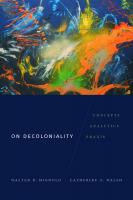 There is no Afro-Brazilian art student I have met who is not enthusiastic about Mbembe’s thoughts. This is definitely a good sign; an expression of the growing debate about racism, hidden for too long in Brazil. The current political situation does not leave space anymore for denial. It is also a reflection of two factors: firstly, the complexity of the relation between decoloniality and globalisation in the South; and secondly, the relation between publishing policies and the circulation of critical thought.
There is no Afro-Brazilian art student I have met who is not enthusiastic about Mbembe’s thoughts. This is definitely a good sign; an expression of the growing debate about racism, hidden for too long in Brazil. The current political situation does not leave space anymore for denial. It is also a reflection of two factors: firstly, the complexity of the relation between decoloniality and globalisation in the South; and secondly, the relation between publishing policies and the circulation of critical thought.
07.09.2021 | by Laura Burocco
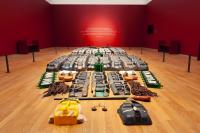 Rather than perceiving a national museum as a mere repository of cultural artefacts emblematic of either the elite’s values or its fetishization of those it excludes and rejects, the curators of Slavery have fully embraced their educational responsibility and their duty to actively contribute to cultural life in the present. All of which cannot prevent a feeling from remaining, that the fires of purgatory still rage on and much must yet be done to extinguish them.
Rather than perceiving a national museum as a mere repository of cultural artefacts emblematic of either the elite’s values or its fetishization of those it excludes and rejects, the curators of Slavery have fully embraced their educational responsibility and their duty to actively contribute to cultural life in the present. All of which cannot prevent a feeling from remaining, that the fires of purgatory still rage on and much must yet be done to extinguish them.
15.08.2021 | by Paulo de Medeiros
 Though based in Amsterdam, Lyuba has made work all over the world – from Japan to Aruba – at art residencies or as a visiting teacher. Wherever she goes, she researches the myths and tales told in that place as inspiration for the characters she builds and the masks they wear. Lyuba is fascinated by Joseph Campbell’s theory of artists as shamans who create the myths that reflect our reality. “Shamans use masks to travel to different realities, to travel to different worlds,” she says, “And in a way I do the same through my artwork.”
Though based in Amsterdam, Lyuba has made work all over the world – from Japan to Aruba – at art residencies or as a visiting teacher. Wherever she goes, she researches the myths and tales told in that place as inspiration for the characters she builds and the masks they wear. Lyuba is fascinated by Joseph Campbell’s theory of artists as shamans who create the myths that reflect our reality. “Shamans use masks to travel to different realities, to travel to different worlds,” she says, “And in a way I do the same through my artwork.”
18.06.2021 | by Lyubov Matyunina and Alix-Rose Cowie
 He titles all of his works Bug Report, named after the message you might see on a computer screen to tell you about program errors or defects. No matter how complex and polished his diagrams and blueprints might seem, he wants to make it clear that they can still be flawed and faulty. “In any highly controlled system, it can hardly be said that there is no possibility of an error,” he says. “There are always some questions around security in this seemingly complete world. In my drawings, the thread is a material symbolizing the imperfect structure of society.”
He titles all of his works Bug Report, named after the message you might see on a computer screen to tell you about program errors or defects. No matter how complex and polished his diagrams and blueprints might seem, he wants to make it clear that they can still be flawed and faulty. “In any highly controlled system, it can hardly be said that there is no possibility of an error,” he says. “There are always some questions around security in this seemingly complete world. In my drawings, the thread is a material symbolizing the imperfect structure of society.”
17.06.2021 | by Keita Mori and Alex Kahl
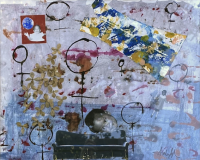 This article demonstrates that antifeminist agendas (often labelled as anti-gender ideology by proponents) are key to understand how ethnonationalist, xenophobic and racist discourses are forwarded by far-right parties in Portugal and across Europe. Therefore, it focuses on the intersections between antifeminism, including femonationalism, and anti-immigration agendas, examining how gendered and racialized tropes are used in conjunction in far-right propaganda.
This article demonstrates that antifeminist agendas (often labelled as anti-gender ideology by proponents) are key to understand how ethnonationalist, xenophobic and racist discourses are forwarded by far-right parties in Portugal and across Europe. Therefore, it focuses on the intersections between antifeminism, including femonationalism, and anti-immigration agendas, examining how gendered and racialized tropes are used in conjunction in far-right propaganda.
19.05.2021 | by Rita Santos and Sílvia Roque
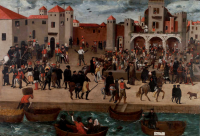 Today, we are learning that invisibility can shun and silence but cannot extinguish. And yes, colonialism can be unlearned; but to do so, it must first be confronted. Colonial amnesia is a political disease – and one for which we have yet to find a cure. Unlike the words uttered by Bruno Candé’s murderer, there are no more senzalas to return to. But, aligned with the theme of reckoning that brought us here today, to unlearn and decolonize, the past must be confronted. One way to start, would entail acknowledging the intersectionality of race-making and forge a vision of collective life not ruled by marked hierarchies.
Today, we are learning that invisibility can shun and silence but cannot extinguish. And yes, colonialism can be unlearned; but to do so, it must first be confronted. Colonial amnesia is a political disease – and one for which we have yet to find a cure. Unlike the words uttered by Bruno Candé’s murderer, there are no more senzalas to return to. But, aligned with the theme of reckoning that brought us here today, to unlearn and decolonize, the past must be confronted. One way to start, would entail acknowledging the intersectionality of race-making and forge a vision of collective life not ruled by marked hierarchies.
01.04.2021 | by Patrícia Martins Marcos
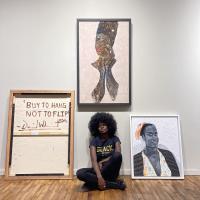 Some say the appreciation of Black art is a trend, but Black art in itself is no more a trend than “white art.” It’s part of world culture, of art history, and history is being made every day. Black art should be appreciated for its contribution to humanity and history. Black people have always collected Black art, appreciated it, and cherished it, even when it received little recognition, as acknowledged in the new HBO documentary Black Art: In the Absence of Light.
Some say the appreciation of Black art is a trend, but Black art in itself is no more a trend than “white art.” It’s part of world culture, of art history, and history is being made every day. Black art should be appreciated for its contribution to humanity and history. Black people have always collected Black art, appreciated it, and cherished it, even when it received little recognition, as acknowledged in the new HBO documentary Black Art: In the Absence of Light.
19.03.2021 | by Destinee Ross-Sutton
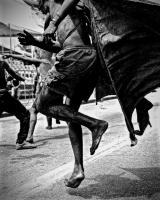 There is a present-day tendency to retreat into the realms of dystopia, of catastrophe and disaster, of failed states and fascism, of environmental collapse and economic apocalypse. This tendency is neither wrong nor mistaken. Yet it is often suffocating, only adding to the pressurized dread of the era, offering no antidote to the plague of cynicism, the chokehold of hopelessness, the drift, or, perhaps, the plunge, into a miasma of pessimism and hopelessness. Of course, there are other tendencies, other possibilities, other ways forward. Here, we briefly mention five recent books, loosely grouped under the banners of anarchism, autonomy, and utopia, that propose better worlds to come – as better must come.
There is a present-day tendency to retreat into the realms of dystopia, of catastrophe and disaster, of failed states and fascism, of environmental collapse and economic apocalypse. This tendency is neither wrong nor mistaken. Yet it is often suffocating, only adding to the pressurized dread of the era, offering no antidote to the plague of cynicism, the chokehold of hopelessness, the drift, or, perhaps, the plunge, into a miasma of pessimism and hopelessness. Of course, there are other tendencies, other possibilities, other ways forward. Here, we briefly mention five recent books, loosely grouped under the banners of anarchism, autonomy, and utopia, that propose better worlds to come – as better must come.
18.03.2021 | by The Public Archive
 Always identified with audacity, - or, as seen in the international press, marked with “controversies” and even “scandals” - the event is among the largest and most important in the art world. The fifteenth edition that was recently carried out was not exempt from a “scandal”: the unanimity of the German press in its judgment of anti-Semitism.
Always identified with audacity, - or, as seen in the international press, marked with “controversies” and even “scandals” - the event is among the largest and most important in the art world. The fifteenth edition that was recently carried out was not exempt from a “scandal”: the unanimity of the German press in its judgment of anti-Semitism.  This exhibition presents around 60 works by 21 artists whose family origins lie in the former colonies in Africa. Born and raised in a post-colonial context, they are artists whose works have become unavoidable in European contemporary art, proposing a reflection on their heritage, their memories and their identities.
This exhibition presents around 60 works by 21 artists whose family origins lie in the former colonies in Africa. Born and raised in a post-colonial context, they are artists whose works have become unavoidable in European contemporary art, proposing a reflection on their heritage, their memories and their identities.  The exhibition, which aims to give voice to a young generation of photographers in Poland, also includes the work of Irena Kalicka, a young artist who is critical of her country’s tendency to turn to the extreme right. I had the opportunity to present a photograph of her in the magazine “Fantasia Macau” last year.
The exhibition, which aims to give voice to a young generation of photographers in Poland, also includes the work of Irena Kalicka, a young artist who is critical of her country’s tendency to turn to the extreme right. I had the opportunity to present a photograph of her in the magazine “Fantasia Macau” last year.  Angola is a nation still recovering from years of war and internal conflict, but photographer Kim Praise has his heart set on capturing the nation’s beauty, and the ways in which it’s evolving for the better. He tells writer Ify Obi about his favorite things about his home, and why he’s determined to paint the country—and its people—in a new light.
Angola is a nation still recovering from years of war and internal conflict, but photographer Kim Praise has his heart set on capturing the nation’s beauty, and the ways in which it’s evolving for the better. He tells writer Ify Obi about his favorite things about his home, and why he’s determined to paint the country—and its people—in a new light.  I believe that through art we can find a strong path of remembrance. Artists are able to communicate across temporalities and spaces, which traditional historiographical treatment could hardly accomplish. Artists who work with individual and personal history build empathy through works compared to academic research. Colonial monuments and street names left un-vandalized are not neutral spaces. As static as stone and tarmac may seem, memory is a process, not something carved and eternally preserved. New practices of memory preservation, from manifold perspectives, allow for addressing misconceptions and novel understandings of where certain contemporary situations emerge. In the absence of these practices, our imaginary becomes an accomplice to denials of violent that can always be repeated in unexpected ways.
I believe that through art we can find a strong path of remembrance. Artists are able to communicate across temporalities and spaces, which traditional historiographical treatment could hardly accomplish. Artists who work with individual and personal history build empathy through works compared to academic research. Colonial monuments and street names left un-vandalized are not neutral spaces. As static as stone and tarmac may seem, memory is a process, not something carved and eternally preserved. New practices of memory preservation, from manifold perspectives, allow for addressing misconceptions and novel understandings of where certain contemporary situations emerge. In the absence of these practices, our imaginary becomes an accomplice to denials of violent that can always be repeated in unexpected ways.  As agitprop, People’s Justice isn’t complex. On the right are the simple citizens, villagers and workers: victims of the regime. On the left are the accused perpetrators and their international accomplices. Representatives of foreign intelligence services – the Australian ASIO, MI5, the CIA – are depicted as dogs, pigs, skeletons and rats. There is even a figure labelled ‘007’. An armed column marches over a pile of skulls, a mass grave. Among the perpetrators is a pig-faced soldier wearing a Star of David and a helmet with ‘Mossad’ written on it. In the background stands a man with sidelocks, a crooked nose, bloodshot eyes and fangs for teeth. He is dressed in a suit, chewing on a cigar and wearing a hat marked ‘SS’: an Orthodox Jew, represented as a rich banker, on trial for war crimes – in Germany, in 2022.
As agitprop, People’s Justice isn’t complex. On the right are the simple citizens, villagers and workers: victims of the regime. On the left are the accused perpetrators and their international accomplices. Representatives of foreign intelligence services – the Australian ASIO, MI5, the CIA – are depicted as dogs, pigs, skeletons and rats. There is even a figure labelled ‘007’. An armed column marches over a pile of skulls, a mass grave. Among the perpetrators is a pig-faced soldier wearing a Star of David and a helmet with ‘Mossad’ written on it. In the background stands a man with sidelocks, a crooked nose, bloodshot eyes and fangs for teeth. He is dressed in a suit, chewing on a cigar and wearing a hat marked ‘SS’: an Orthodox Jew, represented as a rich banker, on trial for war crimes – in Germany, in 2022.  Students’ activism and social demand for more laws for people in need are some ways of changing the issue but are they enough? Can we fight against social stratification? This situation is an old one and it is deep-seated in society. People in power that belong to the upper classes want to remain that way. Is it possible the existence of an equal world with equal people, access, and values?
Students’ activism and social demand for more laws for people in need are some ways of changing the issue but are they enough? Can we fight against social stratification? This situation is an old one and it is deep-seated in society. People in power that belong to the upper classes want to remain that way. Is it possible the existence of an equal world with equal people, access, and values?  With this MEMOIRS project Newsletter, Nº 147, we conclude a journey started on May 5, 2018. To the
group of researchers of the project, to the dozens of external collaborators, to all the artists who
contributed with their images, to the producers and designers, the deep gratitude of the editors, who
are certain of two things: to have contributed to the sharing of a common good, knowledge, and to
have done so in the spirit of public service
With this MEMOIRS project Newsletter, Nº 147, we conclude a journey started on May 5, 2018. To the
group of researchers of the project, to the dozens of external collaborators, to all the artists who
contributed with their images, to the producers and designers, the deep gratitude of the editors, who
are certain of two things: to have contributed to the sharing of a common good, knowledge, and to
have done so in the spirit of public service  The past five years have seen a flurry of activity around issues of restitution of African material heritage, resulting in new reports, new books and even, new returns. Along with this sudden surge in activity there has been an escalation in debate around these questions, where positions once thought to be entrenched, racist, conservative, and considered mainstream, seem to have shifted dramatically. In the frenzy, it can begin to feel as if things are changing and that society is progressing. But we’d do well to pause for deeper dives and more systematic remembering of what has come before.
The past five years have seen a flurry of activity around issues of restitution of African material heritage, resulting in new reports, new books and even, new returns. Along with this sudden surge in activity there has been an escalation in debate around these questions, where positions once thought to be entrenched, racist, conservative, and considered mainstream, seem to have shifted dramatically. In the frenzy, it can begin to feel as if things are changing and that society is progressing. But we’d do well to pause for deeper dives and more systematic remembering of what has come before.  The following dialogue was conducted after the very first action. “Common Ground” was a reading session in which organizers and participants from different cultural backgrounds and with different native languages faced the problem of translation and the complicated, thorny question of language hierarchy in academia (and thus, a hierarchy of ideas). In this dialogue, now reproduced in the written form of an interview, Sala had fulfilled her genuine wish to break the “collective isolation” that many people - including artists - have been facing until now.
The following dialogue was conducted after the very first action. “Common Ground” was a reading session in which organizers and participants from different cultural backgrounds and with different native languages faced the problem of translation and the complicated, thorny question of language hierarchy in academia (and thus, a hierarchy of ideas). In this dialogue, now reproduced in the written form of an interview, Sala had fulfilled her genuine wish to break the “collective isolation” that many people - including artists - have been facing until now.  In the contemporary discussions regarding post-colonial Europe, the concepts of memory and post- memory have taken on growing importance, giving prominence to an insight with great political relevance: colonialism never ends with those who enforced or suffered it. Traces of a colonial mindset impregnate generations to come and it has been passed down through the image of the former coloniser and the former colonised. These characters restage a complex phantasmagoria closely related to the most intimate ghost of the European subconscious: its colonial ghost which manifests itself inter alia in the form of a colonial “transfer of memory” – as racism, segregation, exclusion, subalternity – or in the form of “eruptions of memory”, and thereby questions the very essence of European multicultural societies, shaped by colonial heritage and fed by waves of migration.
In the contemporary discussions regarding post-colonial Europe, the concepts of memory and post- memory have taken on growing importance, giving prominence to an insight with great political relevance: colonialism never ends with those who enforced or suffered it. Traces of a colonial mindset impregnate generations to come and it has been passed down through the image of the former coloniser and the former colonised. These characters restage a complex phantasmagoria closely related to the most intimate ghost of the European subconscious: its colonial ghost which manifests itself inter alia in the form of a colonial “transfer of memory” – as racism, segregation, exclusion, subalternity – or in the form of “eruptions of memory”, and thereby questions the very essence of European multicultural societies, shaped by colonial heritage and fed by waves of migration.  The exhibition Europa Oxalá is also the ideal time to deconstruct the colonial myth and the post-colonial melancholy designated as “African art”. Attributed to all artistic production that originates in the African continent, the expression has been used to differentiate it in a coarse way from all the art included in the compendiums and narratives of the universal history of art founded in the Western matrix. So-called African art was seen as an art without authorship, disconnected from the diversity of its production contexts, be they a country of North Africa, of the South or the east or west coast, be it the 14th or 20th century.
The exhibition Europa Oxalá is also the ideal time to deconstruct the colonial myth and the post-colonial melancholy designated as “African art”. Attributed to all artistic production that originates in the African continent, the expression has been used to differentiate it in a coarse way from all the art included in the compendiums and narratives of the universal history of art founded in the Western matrix. So-called African art was seen as an art without authorship, disconnected from the diversity of its production contexts, be they a country of North Africa, of the South or the east or west coast, be it the 14th or 20th century.  There is no Afro-Brazilian art student I have met who is not enthusiastic about Mbembe’s thoughts. This is definitely a good sign; an expression of the growing debate about racism, hidden for too long in Brazil. The current political situation does not leave space anymore for denial. It is also a reflection of two factors: firstly, the complexity of the relation between decoloniality and globalisation in the South; and secondly, the relation between publishing policies and the circulation of critical thought.
There is no Afro-Brazilian art student I have met who is not enthusiastic about Mbembe’s thoughts. This is definitely a good sign; an expression of the growing debate about racism, hidden for too long in Brazil. The current political situation does not leave space anymore for denial. It is also a reflection of two factors: firstly, the complexity of the relation between decoloniality and globalisation in the South; and secondly, the relation between publishing policies and the circulation of critical thought.  Rather than perceiving a national museum as a mere repository of cultural artefacts emblematic of either the elite’s values or its fetishization of those it excludes and rejects, the curators of Slavery have fully embraced their educational responsibility and their duty to actively contribute to cultural life in the present. All of which cannot prevent a feeling from remaining, that the fires of purgatory still rage on and much must yet be done to extinguish them.
Rather than perceiving a national museum as a mere repository of cultural artefacts emblematic of either the elite’s values or its fetishization of those it excludes and rejects, the curators of Slavery have fully embraced their educational responsibility and their duty to actively contribute to cultural life in the present. All of which cannot prevent a feeling from remaining, that the fires of purgatory still rage on and much must yet be done to extinguish them.  Though based in Amsterdam, Lyuba has made work all over the world – from Japan to Aruba – at art residencies or as a visiting teacher. Wherever she goes, she researches the myths and tales told in that place as inspiration for the characters she builds and the masks they wear. Lyuba is fascinated by Joseph Campbell’s theory of artists as shamans who create the myths that reflect our reality. “Shamans use masks to travel to different realities, to travel to different worlds,” she says, “And in a way I do the same through my artwork.”
Though based in Amsterdam, Lyuba has made work all over the world – from Japan to Aruba – at art residencies or as a visiting teacher. Wherever she goes, she researches the myths and tales told in that place as inspiration for the characters she builds and the masks they wear. Lyuba is fascinated by Joseph Campbell’s theory of artists as shamans who create the myths that reflect our reality. “Shamans use masks to travel to different realities, to travel to different worlds,” she says, “And in a way I do the same through my artwork.”  He titles all of his works Bug Report, named after the message you might see on a computer screen to tell you about program errors or defects. No matter how complex and polished his diagrams and blueprints might seem, he wants to make it clear that they can still be flawed and faulty. “In any highly controlled system, it can hardly be said that there is no possibility of an error,” he says. “There are always some questions around security in this seemingly complete world. In my drawings, the thread is a material symbolizing the imperfect structure of society.”
He titles all of his works Bug Report, named after the message you might see on a computer screen to tell you about program errors or defects. No matter how complex and polished his diagrams and blueprints might seem, he wants to make it clear that they can still be flawed and faulty. “In any highly controlled system, it can hardly be said that there is no possibility of an error,” he says. “There are always some questions around security in this seemingly complete world. In my drawings, the thread is a material symbolizing the imperfect structure of society.”  This article demonstrates that antifeminist agendas (often labelled as anti-gender ideology by proponents) are key to understand how ethnonationalist, xenophobic and racist discourses are forwarded by far-right parties in Portugal and across Europe. Therefore, it focuses on the intersections between antifeminism, including femonationalism, and anti-immigration agendas, examining how gendered and racialized tropes are used in conjunction in far-right propaganda.
This article demonstrates that antifeminist agendas (often labelled as anti-gender ideology by proponents) are key to understand how ethnonationalist, xenophobic and racist discourses are forwarded by far-right parties in Portugal and across Europe. Therefore, it focuses on the intersections between antifeminism, including femonationalism, and anti-immigration agendas, examining how gendered and racialized tropes are used in conjunction in far-right propaganda.  Today, we are learning that invisibility can shun and silence but cannot extinguish. And yes, colonialism can be unlearned; but to do so, it must first be confronted. Colonial amnesia is a political disease – and one for which we have yet to find a cure. Unlike the words uttered by Bruno Candé’s murderer, there are no more senzalas to return to. But, aligned with the theme of reckoning that brought us here today, to unlearn and decolonize, the past must be confronted. One way to start, would entail acknowledging the intersectionality of race-making and forge a vision of collective life not ruled by marked hierarchies.
Today, we are learning that invisibility can shun and silence but cannot extinguish. And yes, colonialism can be unlearned; but to do so, it must first be confronted. Colonial amnesia is a political disease – and one for which we have yet to find a cure. Unlike the words uttered by Bruno Candé’s murderer, there are no more senzalas to return to. But, aligned with the theme of reckoning that brought us here today, to unlearn and decolonize, the past must be confronted. One way to start, would entail acknowledging the intersectionality of race-making and forge a vision of collective life not ruled by marked hierarchies.  Some say the appreciation of Black art is a trend, but Black art in itself is no more a trend than “white art.” It’s part of world culture, of art history, and history is being made every day. Black art should be appreciated for its contribution to humanity and history. Black people have always collected Black art, appreciated it, and cherished it, even when it received little recognition, as acknowledged in the new HBO documentary Black Art: In the Absence of Light.
Some say the appreciation of Black art is a trend, but Black art in itself is no more a trend than “white art.” It’s part of world culture, of art history, and history is being made every day. Black art should be appreciated for its contribution to humanity and history. Black people have always collected Black art, appreciated it, and cherished it, even when it received little recognition, as acknowledged in the new HBO documentary Black Art: In the Absence of Light.  There is a present-day tendency to retreat into the realms of dystopia, of catastrophe and disaster, of failed states and fascism, of environmental collapse and economic apocalypse. This tendency is neither wrong nor mistaken. Yet it is often suffocating, only adding to the pressurized dread of the era, offering no antidote to the plague of cynicism, the chokehold of hopelessness, the drift, or, perhaps, the plunge, into a miasma of pessimism and hopelessness. Of course, there are other tendencies, other possibilities, other ways forward. Here, we briefly mention five recent books, loosely grouped under the banners of anarchism, autonomy, and utopia, that propose better worlds to come – as better must come.
There is a present-day tendency to retreat into the realms of dystopia, of catastrophe and disaster, of failed states and fascism, of environmental collapse and economic apocalypse. This tendency is neither wrong nor mistaken. Yet it is often suffocating, only adding to the pressurized dread of the era, offering no antidote to the plague of cynicism, the chokehold of hopelessness, the drift, or, perhaps, the plunge, into a miasma of pessimism and hopelessness. Of course, there are other tendencies, other possibilities, other ways forward. Here, we briefly mention five recent books, loosely grouped under the banners of anarchism, autonomy, and utopia, that propose better worlds to come – as better must come. 